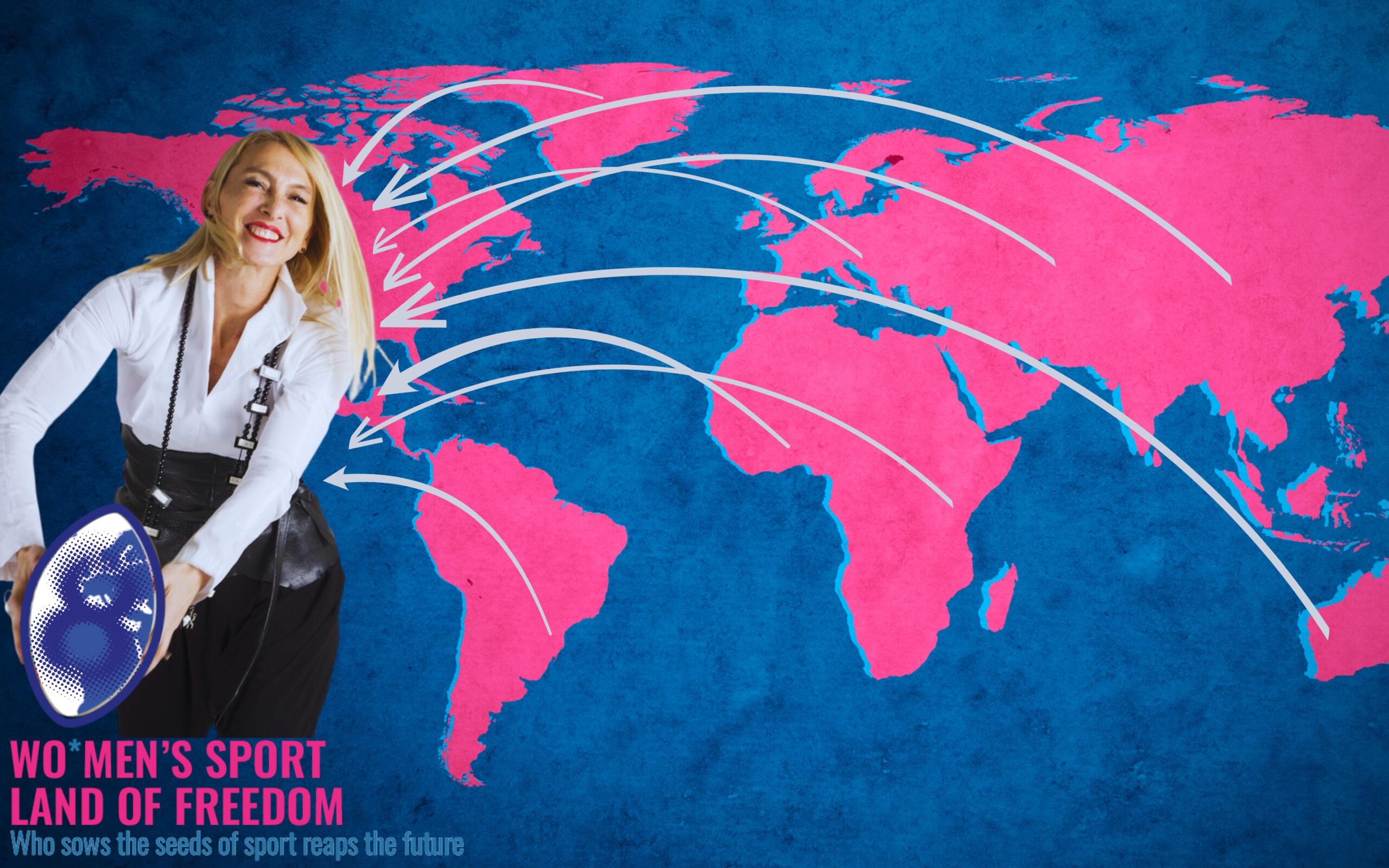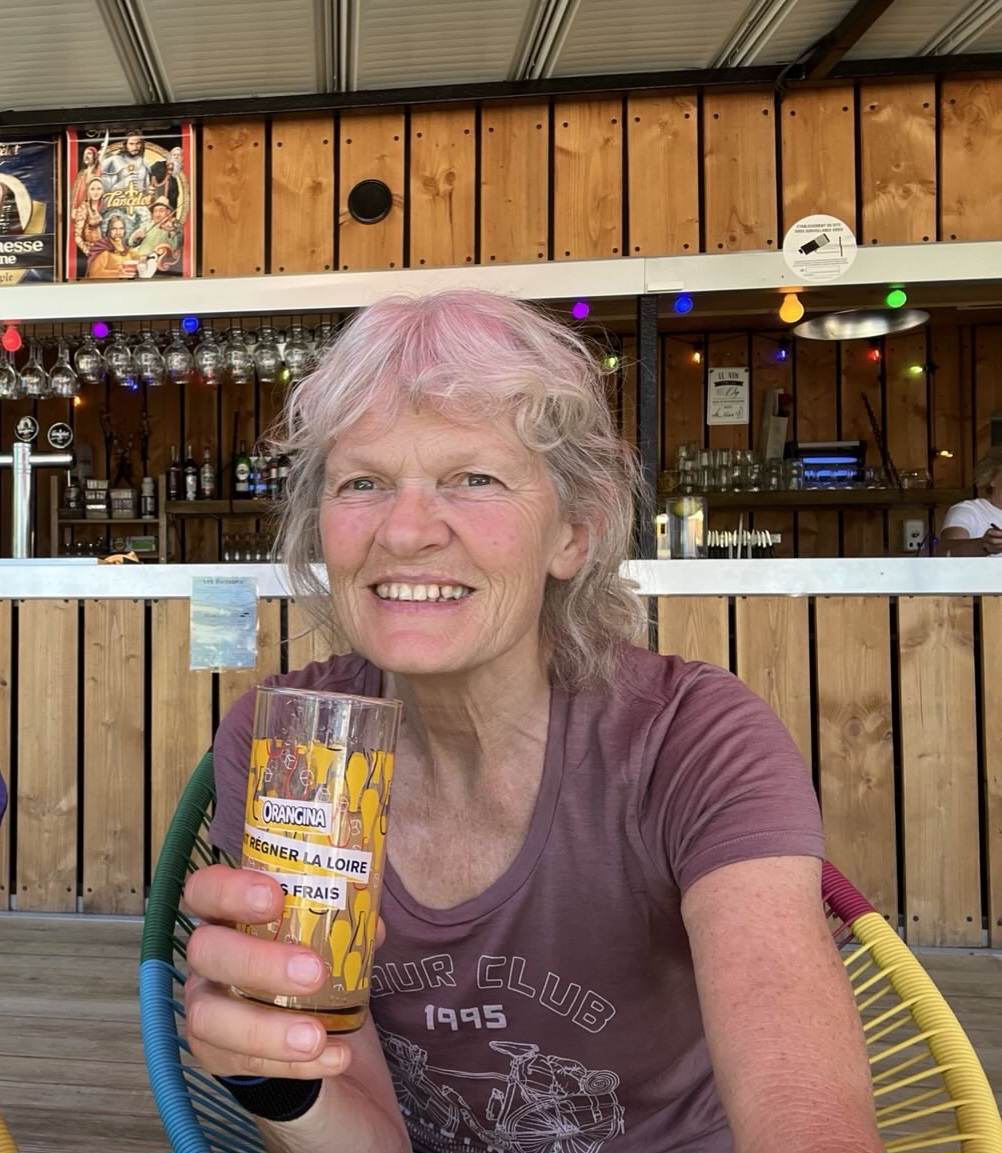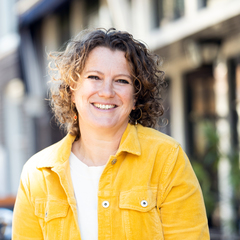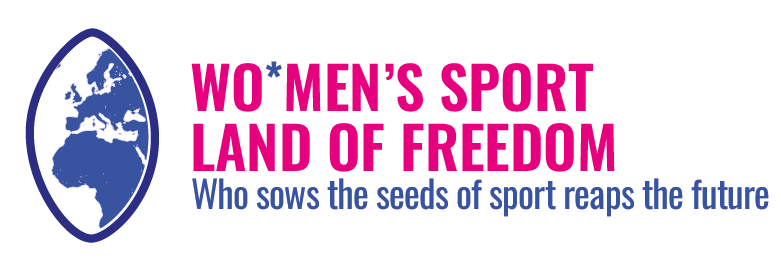
NETHERLANDS: IN RUGBY IT’S NEVER ‘WHY EREN’T YOU HERE?’, IT’S ALWAYS ‘SO GOOD TO SEE YOU AGAIN’
“In rugby it’s never ‘Why weren’t you here?’, it’s always ‘So good to see you again”
Hanneke Brouwer

Annelies Acda

Thanks to:
Hanneke Brouwer
Former international player
Annelies Acda
Former general secretary
- The history of the women’s movement in Netherlands
- Testimonials
- Reading Time: 8 minutes
NETHERLANDS - Find out more
(Source: CBS/StatLine; data.worldbank.org; theglobaleconomy.com; genderdata.worldbank.org; eurostat; The Times – Netherlands part-time work)
HISTORY OF THE COUNTRY (Hanneke Brouwer)
1. When did the women’s rugby movement start in your country and what is its history? How is rugby structured in your country?
The first women’s rugby match in the Netherlands took place on April 12, 1975 in Wageningen. The RC Wageningen men’s team was celebrating its fifth anniversary and thought it would be fun to organize a women’s match. They invited girlfriends and other women, most of whom played sports like basketball, volleyball, athletics, etc. The opponents were girls from RC Elephants in Eindhoven, also friends of friends who loved sporting challenges. The women of Wageningen enjoyed it so much that they decided to start training. At the time there were no women’s teams in the country, but in some rugby clubs there were individuals who wanted to play. The Wageningen women contacted them as soon as they heard of their existence to organize matches. In the early years, they managed to play a few times, but never with two full squads. The Nederlandse Rugby Bond (the national men’s organization) initially refused to recognize women. In 1978, the first meetings were held where it was made clear that women had to prove their worth before being allowed to become members of the NRB. They had to arrange coaches, referees, and the organization of matches themselves. And they did. Only in 1982 were women allowed to become NRB members and a limited competition was established. At that time, there were 13 women’s teams in the country. On June 13, 1982, the first international match was played in Utrecht between the Netherlands and France. Today, there are more than 2,000 female players in the Netherlands, spread across 39 clubs. The 2025 structure is as follows: Seniors: Premier Division (8 teams), 1st Division: 9 teams, 2nd Division: 8 teams, 3rd Division: 8 teams / U18: 38 teams / U16: 59 teams / U14: 71 teams.
2. Do you think playing rugby has a social impact for a woman in your country?
I am sure that playing rugby helps women become stronger against, for example, body negativity and misogyny. It brings women together and shows what they are capable of. Unfortunately, rugby is still a minor sport in the Netherlands with little media coverage. This has been improving in recent years, but so far mainly for men’s rugby.
3. In your opinion, what can rugby give to women in your country?
As mentioned above: rugby helps women feel strong and connect with other women, regardless of how they look or how athletic they are. There is always a place for them on the field. Beyond feeling healthy and strong, the social benefits for women who play rugby are immense. Rugby creates friendships that last a lifetime.
JOURNEYS THROUGH RUGBY (Annelies Acda)
The interview responses are taken from the following video:
https://www.youtube.com/watch?v=TozTsVyn3FY
1. What has rugby taught you that has had an impact on your daily life? Can you give an example of when a rugby mindset was useful to you?
(Rugby has deeply influenced her career, self-esteem, and communication skills, ed)
“It gave me leadership and public speaking skills that I now use in my professional life. I realized that maybe I’m not the slimmest woman around, but I can lift others up, and they trust me. You’re part of a team where everyone protects each other.”
2. Can you give me three words that connect rugby with freedom?
Strength. Acceptance. Inclusion. “I wish every woman could experience this strength — not to look a certain way, but to feel supported, confident, and powerful. In rugby it’s never ‘Why weren’t you here?’, it’s always ‘So good to see you again.’”
3. What does it mean to you to live in a land of freedom?
“In rugby I’ve always felt welcomed, even after a long time away. You can count on others when you’re vulnerable, and support others when you’re strong.”
4. What object represents you and why?
“The object I brought is a T-shirt from a team we created, called ‘Beware of Pedestrians.’”
